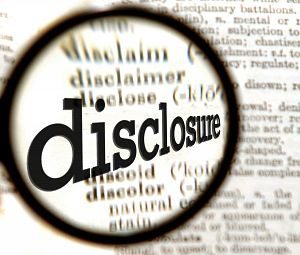Disclosure is a term that everyone involved in the criminal justice system needs to know. In a nutshell, disclosure is a copy of the evidence that the Crown and police have collected to prosecute your case. Everything that the Crown or police have in their possession must be given to you so that you know exactly what their case against you consists of. It is your constitutional right to be given all of this and there can be consequences if the Crown fails to do this. The Crown must disclose all material information that is in its possession or control that is not clearly irrelevant, regardless if the evidence is to be called at trial or if it will hurt or help your case.
An important thing to note is that the duty of the Crown to disclose all evidence to you is continuous throughout the proceedings up to and including the trial. Although the Crown may object to the request on the basis that the material is irrelevant, outside of their control, or otherwise privileged. If the Crown objects a request, the burden is on the Crown to justify the refusal to disclose.
Disclosure usually comes in a package that will be given to you by the Crown when you or your counsel are standing at the front of the courtroom, after your name has been called. In some courthouses, you may be able to get your disclosure before court starts.
Disclosure will probably look like a package of papers stapled together. While what the package will include mostly depends on the charges you are facing, they usually include things like: a crown screening form (also called a charge screening form); copies of police officers’ notes; witness statements; photographs, a DVD or an audio CD.
You will usually get your disclosure on your first appearance date. If this doesn’t happen, you will want to let the judge know that you didn’t get your disclosure. You may also get more disclosure if you come back to court for further court dates.
Your disclosure package will also have a written summary of the Crown’s version of the incident that lead to your charge(s). This is called a synopsis. You may or may not agree that things happened the way the synopsis says they did. When looking at your disclosure, it is important to remember that it represents the evidence gathered by the police and it may not include your side of the story.
At Capulli Law we are skilled at going through disclosure to put together the best defense possible for your case. We know what to ask the crown for depending on the situation and will hold the Crown accountable if they hold anything back that could have a bearing on the outcome.
